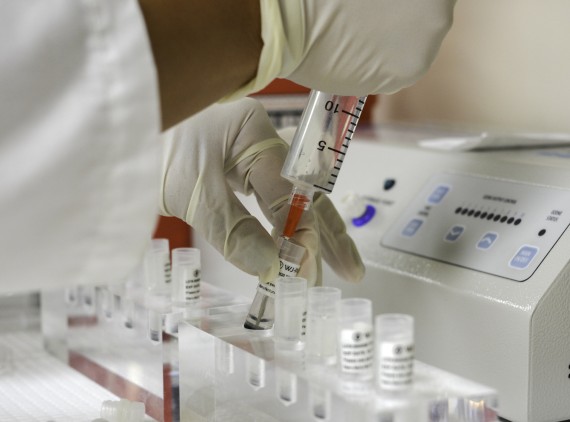- Blood & Marrow Transplant Program
- Bone Marrow Failure Program
- Center for Cancer & Blood Disorders (CCBD)
Recently, the Phoenix Children’s Bone Marrow Transplant (BMT) Program performed its 500th transplant procedure and July marked the 18th anniversary of the program which is the largest pediatric provider of pediatric bone marrow transplants in Arizona.
The Phoenix Children’s Bone Marrow Transplant (BMT) Program is jointly accredited by the Foundation for the Accreditation of Cellular Therapy (FACT) with Mayo-Phoenix, and for a third consecutive year carries a +1 rating for risk adjusted outcomes by the Center for International Blood and Marrow Transplant Registry (CIBMTR). This +1 rating is reserved for centers with outcomes in the top 10 percent in the US.
Dr. Roberta Adams was recruited to Arizona in 2002 as the medical director of both Phoenix Children’s and Mayo BMT programs. Dr. Adams launched the BMT program at Phoenix Children’s in 2003 with the first autologous transplant, and within 6 months, expanded the program into allogeneic-related transplants for leukemia. By 2005 the first allogenic unrelated transplant procedure was performed. Since that time, the program has continued to expand the therapeutic treatment options for the pediatric patients of Arizona offering cord blood and Haploidentical donor procedures. In 2017, the team expanded into cellular therapy, becoming the first site in Arizona approved for the administration of the Novartis CAR-T product, Kymriah, for ALL in pediatrics and young adults.
BMT therapy is offered at Phoenix Children’s Center for Cancer and Blood Disorders for pediatric malignancies such as relapsed/high risk leukemias, lymphomas, brain tumors and some solid tumors such as neuroblastoma. However, over the course of 18 years, our program is now performing more than 40% of our bone marrow transplant procedures per year for non-malignant diagnosis such as sickle cell disease, severe aplastic anemia, severe combined immune deficiency, and various other immune deficiencies.
Over the past two decades, the expansion of treatment options has been accompanied by the ability to perform transplants with less aggressive preparative regimens. Today, we can provide lifesaving procedures with less intensive immune system alteration which decreases side effects and long-term complications. These changes, coupled with new medications which allow the immune system to recover more quickly, treat side effects such as nausea more effectively, as well as better anti-viral and anti-fungal treatments allow our patients to be hospitalized for shorter periods of time leading to more expedient recovery time with less long-term sequelae.
The Phoenix Children’s Bone Marrow Transplant (BMT) Program is focused on not only ensuring survival but quality of life for our patients. We have specialized care teams and clinics for both graft-versus-host disease and long-term follow up (LTFU). These clinics also partner with sub-specialty providers in disciplines such as nephrology, dermatology, gastroenterology, and apheresis to provide treatment plans and follow up designed for each individual patient based on their underlying diagnosis and BMT treatment. Additionally, recognizing the significant emotional stress that transplant imposes on patients and their families, everyone is assigned a psychologist or mental health therapist, and a social worker, to help the entire family manage the inherent stresses of this intense therapy.
The expansion and growth of the BMT Program at Phoenix Children’s Center for Cancer and Blood Disorders over the past two decades marked by these amazing milestones is proof of the Phoenix Children’s health system maturity. To sum up the milestone’s success, Dr. Adams added, “Transplant demands a high level of clinical excellence across so many specialties. Reaching this milestone is truly a hospital-wide commitment to care and quite an achievement by Phoenix Children’s.”

